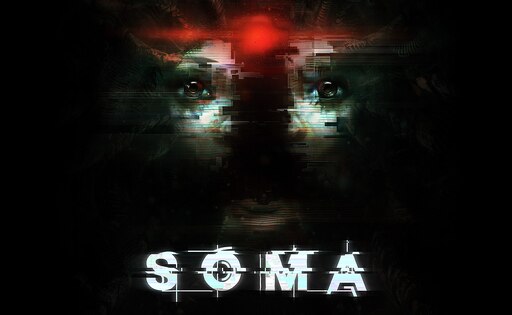SOMA Review

An attempt to turn everything into something that can be quantified or computed is a manifestation of the fear of death. Because if everything is information it opens the possibility that you can never die. Understand and know everything; Catherine was the most scared of all.
I replayed Soma recently. I found it nihilistic, materialistic, deterministic, atheistic, and shallow.
Despite that, it sent me into an existential crisis.
Despite not agreeing with the ideas it portrayed on a moral and ethical level, it made me feel them. It certainly challenged my views, especially as someone who is still figuring out their standing on religion as well as many other issues. Soma is deeply, ironically, intentionally or not, religious. Because religion is philosophy, and philosophy is in itself a part of existence. I wouldn’t describe Soma as existential.
There’s an idea that the church or religion is conservative, or maybe rather anti-progressive. I’m not sure that’s quite accurate, and I will try to refrain from referring to other media whilst discussing this. Any ‘idea’ is conservative. Like a law, it is an inscription of perceived truth. “We have figured this out to be the best way, so we have written it down for now so other people don’t have to fumble around hurting themselves with something worse.”
This is why language is important. This is why meaning is important. You cannot build anything without a foundation.
“But what if the foundation is rotten?”
Then we’re fucked. I applaud Soma for not having multiple endings based on on decisions in the game, because it perfectly aligns with its view of the world. The view of the world that Soma depicts is that we’re at the bottom of the ocean, and we are intellectually, informationally alone. Depending on your interpretation, Catherine, or rather the tool that has a copy of Catherine’s personality, dies at the end. When you kill the WAU Simon remarks that he has killed something torturing the memory of humanity, even though he is a product of it, and you can follow that logic to its end. There is nothing to conserve but ourselves, but even we don’t exist, we have demonstrated that morally. There is no coin toss.
My belief is that we die and that is it. And that is terrifying. No wonder people want to believe almost anything else, religion or rationality that allows for the hope that they might become somehow immortal through their information. I believe that humans are not interchangeable beings, even if we categorise and treat each other as such, often correctly.
Therefore the time of our individual experience is deeply precious. What has been conserved by others is evidence of that. Call it an attempt at immortality, I call it an attempt to help others move forward by indicating the specifications of foundations.
People have called me a misanthrope, a pessimist, but ultimately I think think that these ideas are fundamentally optimistic and philanthropic.
Moving on from these ideas is very hard, and should be done so with caution. Disregarding thousands of years of lessons recorded in human history is a task that should be done only with great hesitancy.
Soma assumes that these ideas are bunk, and all that remains is information. The greatest error Soma makes is transferring your agency to anything else. It does this 2 times before giving you the ‘truth’ of its philosophy, even though it states it repeatedly. How’s that for nihilism? For pessimism? A reduction to materialism or rationalism?
The true philosophy of Soma, which would make a terrible game, is that you get the brainscan, and then it shows a log of all the conversations and events of the game postmortem, followed by credit roll and minus the ‘good ending’ teaser. An awful twist could be going home full of hope after the scan, and finding out all this information on the computer, but that would imply that Simon was on the Ark, and that his consciousness had been transferred, but I’m still sure somebody thought of it. Either way, both would be high art, and Soma remains art, even if it’s art I find disgusting.
Great game. For their 10 year anniversary they announced a physical release. Ironic.
Ghost in the machine levels of introduction to philosophy and it managed to make me have an existential breakdown on a second playthrough about the fact that I’m going to die one day and there’s nothing that can ever replace or stop that, and that’s okay, and that idea terrifies me. The game was criticised for not being as scary as Amnesia and yet it’s horror was far more philosophical and profound. In this it has more in common with The Bunker.
Simon begins his journey wishing to stay on Earth. That ends with his death, even if his personality copy ‘ends’ wishing to leave it. There is no coin toss. Your fate was sealed from the moment you took your first breath.
9/10 I couldn’t figure out what it wanted me to do some times and I don’t think it’s because I am getting older.